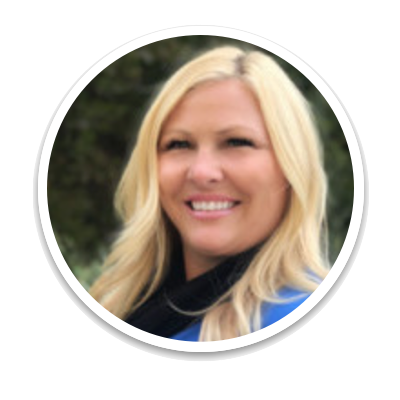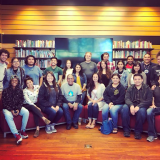Nailing an Interview, During COVID and Beyond!
August 25, 2020

Erin Berthon, MA Career Advisor, Wilkinson College of Arts, Humanities, and Social Sciences, at Chapman University
It doesn’t seem to be the easiest time to find a job right now, but according to LinkedIn and other job sites, plenty of companies and organizations are hiring.
So, there is hope!
The COVID-19 pandemic is keeping most people and students at home, which means, interviewing for a job or internship will most likely be conducted virtually. This makes mastering the interview process more important than ever.
When you are interviewing to work or intern with a company or entity that truly excites you, showing your enthusiasm can help you nail the Q & A portion of the interview. Being personable, friendly, and excited to work or intern at your dream job can show the potential employer your passion, helping them envision you as someone they want to work with, and that’s a huge plus. Sometimes, enthusiasm and being a good fit in the company’s culture is even more important than a person’s ability to fulfill the job requirements.
Being well prepared for the interview can help you articulate your strengths and how they fit into the prospective company’s vision. Your ability to market yourself, especially during the era of COVID, starts with identifying your strengths.
Interview questions fall into three categories; specific questions, information about you; open-ended questions such as, “What makes you a strong candidate for this position?”; and situational questions on how you would handle different scenarios. Each type of question is an opportunity to highlight your top strengths in your responses.
How can you highlight your strengths if you do not know what they are? You can conduct a self-analysis, consult a mentor, or ask someone close to you. This technique will help identify strengths, weaknesses, opportunities, and threats related to the competition. Ask yourself questions about your strengths to help you recognize characteristics that give you an advantage over others:
- What do I do best?
- What skills do I have?
- What do other people say I do well?
- What resources do I have available to improve my resume and skills?
- What is my greatest achievement?
“What are your weaknesses?”
So, what about the question we all dread, “What are your weaknesses?” In responding to this interview question, use the words ‘vulnerability’ or ‘opportunity’ to reframe the conversation. As you consider your answer to the “weaknesses” question, take the exercise as a growth opportunity in itself. If you can identify areas where you could be stronger, why not start working on them now? For example, you can explain time management has been difficult for you, but to overcome that challenge, you have taken the opportunity to take classes on LinkedIn Learning to help with your “weakness” of time management.
Next, evaluate your professional skills, such as critical thinking, speaking, researching, and writing, and your personal skills such as loyalty, willingness to learn, dependability, and adaptability. This is where students in the Arts, Humanities, and Social Sciences shine, especially once you are confident in identifying and articulating your strengths. With this, you can tap into those strengths and think about how you can “tell a story” about yourself while answering the questions. Back up each strength you have identified by telling the interviewers a success story that includes at least one example that illustrates that strength.
Increase your confidence. Practice (remotely!). The Office of Career and Professional Development has just adopted Standout, an online interviewing “practice” website. This is a great time to practice interviewing and receive feedback. Standout helps to identify fidgets, um’s, and poor body language, especially if you are seeking more confidence over video chat. Take the time to practice answering potential open-ended and situational questions, or any type of question that raises your anxiety.
Taking a deep breath as conditions change, especially during COVID, is a good habit and mindset to keep during your job or internship search, application, and interview process. Identifying your greatest strengths, keeping them top of mind, and learning to communicate them well, will keep you in the habit of noticing what you can and already have achieved. Take this time, while being at home, to practice your interviewing skills and find your confidence.
Practicing for an interview works
I have met with many alumni and current students who have been sharing their success stories with me. When I ask them, what did you do to prepare yourself? They simply said, took the time to prepare a good resume and a great interview. Practicing the interview helps you feel confident, comfortable, and helps you prepare. What I remind alumni is that after you have had a chance to digest all the advice, take a moment to remember: You Got This. It’s cheesy, but having a little faith in yourself (and patience!) is one of the keys to job search success. You may not nail the first or third interview, but know that you have a chance to improve with each iteration. Remember the basics, think back to your past accomplishments, and put your best foot forward.


